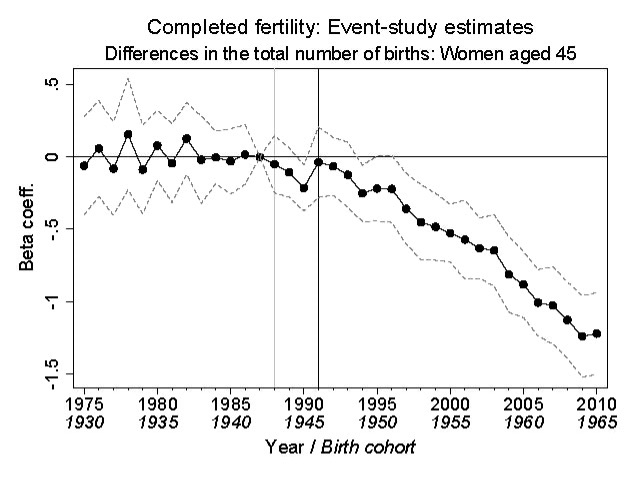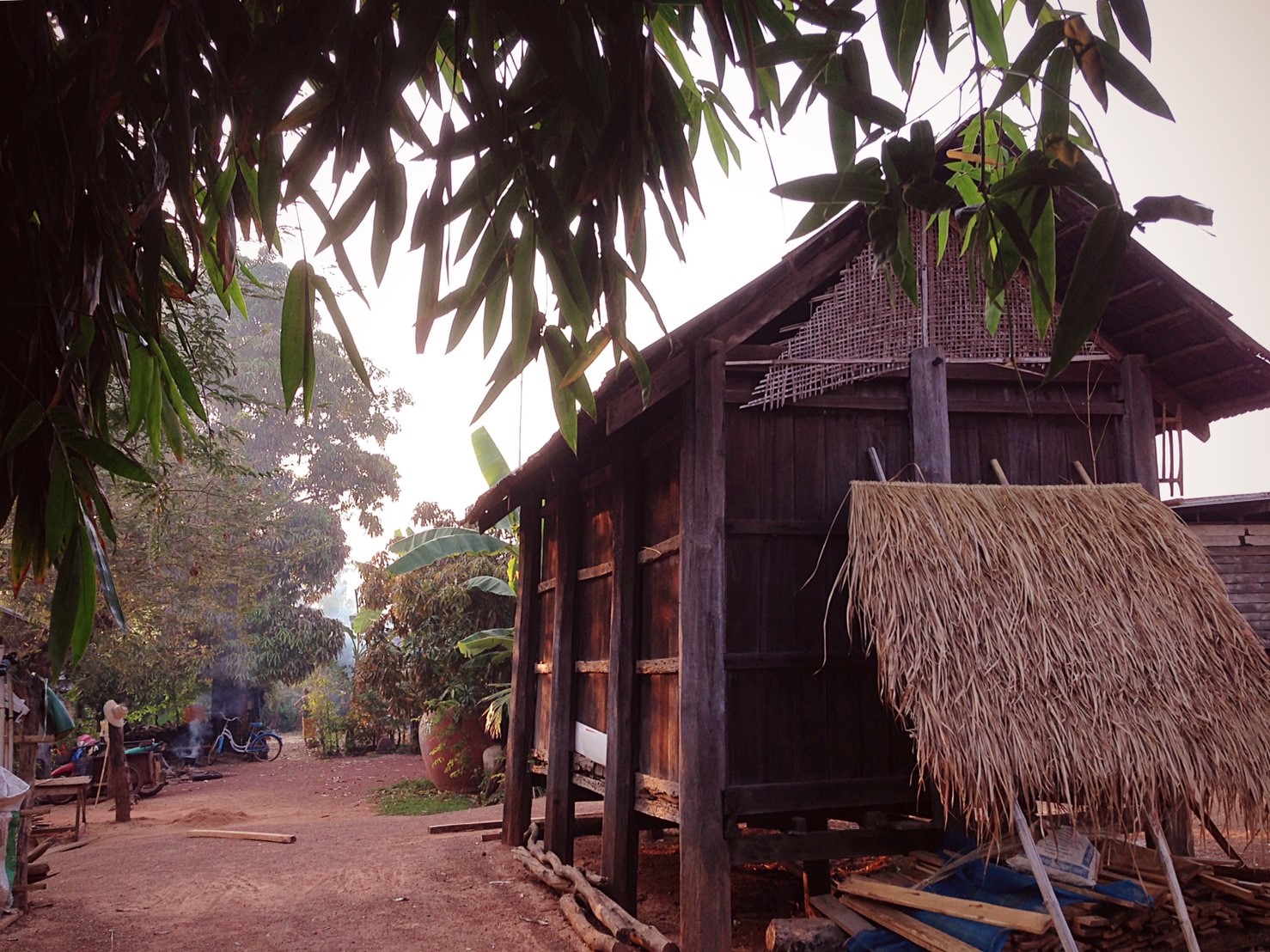Aktuelles
We would like to draw your attention to the upcoming German Development Economics Conference scheduled for May 23-24, 2024, and hosted by Leibniz University Hannover. We are thrilled to announce that our keynote speakers for this year’s conference are Sandra Sequeira from the London School of Economics and Tavneet Suri from the MIT Sloan School of Management.
We invite you to submit your full papers for consideration. The submission period opens on December 1st, 2023, and concludes on February 15th, 2024. Notifications of acceptance will be sent out by late March 2024.
Please find further information and the full Call for Papers here.
Forschung der Mitglieder

Eine althergebrachte theoretische Behauptung lautet, dass Kinder als Altersvorsorge ihrer Eltern dienen, wenn keine staatlichen Sozialversicherungssysteme existieren. Aber wie lässt sich diese Hypothese empirisch überprüfen? Der Aufsatz untersucht den Zusammenhang indem wir die Einführung eines umfassenden und finanziell lukrativen Rentensystems in Brasilien unter die Lupe nehmen. Während Angestellte in Ballungsräumen schon seit mehreren Jahrzehnten in ein staatliches Rentensystem einzahlen, erhielten Beschäftigte und Selbständige im ländlichen Raum Brasiliens erst mit der Verfassungsreform von 1991 Zugang zu einer staatlichen Altersvorsorge. Die Forschung zeigt, dass betroffene Frauen, die in jungen Jahren Ansprüche für das staatliche Rentensystem erwerben konnten, tatsächlich weniger Kinder bekamen. Im Vergleich zur Kontrollgruppe (Frauen in städtischen Siedlungsgebieten, für die keine Änderung in der Altersvorsorge vorgenommen wurde) gebaren die von der Einführung des Rentensystems betroffenen Frauen bis zum Alter von 45 im Durchschnitt 1,3 Kinder weniger, und damit unter 4 Kindern pro Frau. Dies beschleunigte den ohnehin seit vielen Jahrzehnten zu verzeichnenden Geburtenrückgang im ländlichen Brasilien. Damit verschärfte die Rentenreform die demographischen Unterminierung des umlagefinanzierten Rentensystems in Brasilien.

Die empirische Evidenz zur zeitlichen Stabilität der Risikoaversion und zur Rolle exogener Schocks ist nicht schlüssig. In diesem Beitrag greifen wir dieses Problem auf und analysieren, ob und inwieweit sich die Risikoaversion als Reaktion auf Niederschlagsschocks in einem landwirtschaftlichen Kontext ändert und welche Rolle Veränderungen bei den Erträgen und den Preisen als zwei mögliche Kanäle spielen. Wir untersuchen dies sowohl in einem einfachen theoretischen Modell als auch in einer umfangreichen empirischen Studie. Das theoretische Modell sagt voraus, dass Haushalte, die entweder Nettoverkäufer, -käufer oder autark sind, unter Vorsichtsbedingungen ihre Risikoaversion erhöhen. Um die Vorhersagen des Modells zu testen, verwenden wir einen Paneldatensatz mit denselben 1.005 Befragten aus Nordostthailand und Zentralvietnam (TVSEP), die in fünf Erhebungswellen zwischen 2008 und 2017 befragt wurden, und kombinieren ihn mit historischen Niederschlagsdaten auf Dorfebene, um negative Niederschlagsschocks zu erfassen. Unsere empirische Strategie nutzt exogene Variationen des Zeitpunkts, des Ortes und des Ausmaßes von Niederschlagsdefiziten, um deren Auswirkungen auf die Risikoaversion zu ermitteln. Wir stellen fest, dass Niederschlagsmangel die Risikoaversion der Befragten erhöht, ein Ergebnis, das über alternative Spezifikationen hinweg bemerkenswert stabil ist.Der Haupteffekt von Niederschlagsmangel auf die Risikoaversion ist bei den Nettokäufern am größten und bei den Nettoverkäufern etwa halb so groß. Autarke Haushalte weisen keinen signifikanten Effekt auf. Obwohl Niederschlagsdefizite zu erheblichen Einbußen bei den landwirtschaftlichen Erträgen und einem signifikanten Anstieg der Preise führen, deutet die Mediationsanalyse darauf hin, dass diese Marktmechanismen keine signifikante Rolle spielen, abgesehen von einem kleinen statistisch signifikanten Mediationseffekt der Preise bei Nettokäufern. Unser Ergebnis, dass Niederschlagsdefizite zu einem signifikanten Anstieg der Risikoaversion führen, insbesondere bei Haushalten, die beim Kauf von Nahrungsmitteln von den lokalen Märkten abhängig sind, hat potenziell wichtige Auswirkungen auf die Ernährungssicherheit und die Armutsdynamik. Ein erhöhtes Maß an Risikoaversion kann Investitionen, z.B. in eine vorteilhafte Technologie, untergraben, zu entgangenen Erträgen führen und die Wahrscheinlichkeit erhöhen, unter die Armutsgrenze zu fallen.
Stellenanzeigen
The GIGA seeks to appoint a Postdoctoral Research Fellow (m/f/d) Globalisation and Development Applications are invited for a full-time position, with an initial contract of three years and the possibility of another three years after successful evaluation and depending on the availability of funds. The successful applicant should start as soon as possible. The position is designed for further professional qualification as defined in § 2 WissZeitVG (Academic Fixed-Term Contract Act). The salary is commensurate with EG 13 TV-AVH / TVöD. Part-time options will be considered, if so desired by the successful candidate.
The successful candidate will be affiliated to one of the GIGA’s Regional Institutes and conduct research within Research Programme 3 “Globalisation and Development” (RP3). The programme studies the economic, political, and social foundations of inclusive and sustainable development; its current research focuses, inter alia, on sustainability in global value chains, decent work and employment, climate change and development, and rural-transformation processes. Further, RP3 frequently engages in research at the interface of political economy and development. It is planned to expand RP3’s research activities on the development implications of digitalisation and the “just energy transition” in the Global South. This list of topics is not exhaustive, and the candidate’s own work can match or complement RP3’s ongoing research. The candidate is expected to hand in a research outline explaining how they would contribute to the GIGA’s research agenda. This outline should include concrete ideas for collaboration with projects and researchers at the GIGA.
The candidate is expected to conduct excellent research with real-world relevance and, accordingly, to participate in knowledge-exchange and outreach activities (media engagement, policy advice, and similar). There are no teaching obligations for this position, but the Institute offers support in finding teaching opportunities at one of the GIGA’s partner universities.
Screening of applications will begin on 29 April 2024. Further information can be found here.
The Chair of Development Economics at the University of Fribourg is seeking applications for a 5-year (100%) PhD position. The candidates are expected to have a strong research interest in microeconomics applied to developing countries. The focus of the position is on research, with a small workload on assistance for teaching and administration of the Chair. Candidates should have a Master’s degree in economics, statistics or a related field, preferably with a good command of econometric tools. Excellent English language skills are required; good French language skills are recommended. The position will begin on September 1, 2024. All applications should be submitted by April 15, 2024.
More information can be found here.
Veranstaltungshinweise
Financial systems are developing rapidly around the global South. These developments increase the need for research into their effects, especially regarding issues of financial inclusion and individual as well as institutional responses.
To this end Heidelberg University’s South Asia Institute and the Department of Economics will host the sixth annual workshop “Finance and Development” in Heidelberg, Germany, on May 16 in the afternoon and May 17, 2024.
Deadline for submitting full papers and presenter nominations is February 2, 2024, with selection decisions to follow by March 8.
Further information can be found here.
The Research Training Group Digital Platform Ecosystems (DPE) at the University of Passau is organizing the first DPE Forum on „Bytes and Behemoths: Understanding Power in Digital Platform Ecosystems,“ to be held on June 4-5, 2024. The forum will feature keynote speakers Professor Marshall van Alstyne (Boston University) and Professor Dr. Martin Selmayr (European Commission in Austria). Abstract submissions are welcomed until January 31, 2024.
The full Call for Papers can be found here.
